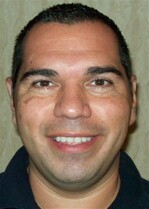In educational organizations and discussions, when we’re talking about schooling up to high school graduation, we often shorthand the age range as “K-12" and leave out the “PK” - pre-kindergarten, or early childhood education. However, National Board Certification in Early Childhood education does include the first teachers who work with our youngest students.

Michael de la Torre is an NBCT and a bilingual pre-school teacher at Bryson Avenue Elementary in Los Angeles Unified School District (and also a member of the NBPTS Board of Directors). I met him at a Saturday morning conference session about teacher leadership, and I asked him about the status of pre-school teachers in conversations about education and teaching. “I don’t feel any big distinction. I just include myself,” he replied. He did add, however, that pre-school teachers “keep to ourselves a bit” and end up marginalized. Other people don’t understand the educational aspect of the work. “They think we just play all day. I have to validate our work. They don’t see the value.” The implications of that lack of understanding are that policymakers don’t understand the importance of early childhood education and they find themselves on the front end of governmental budget cuts.
Asked about the educational approaches in pre-school, de la Torre said “we assess our children more than anyone. We know our students because we observe and engage with them daily.” He also emphasized that pre-school teachers engage and communicate with parents quite a bit, and even offer some parent education that supports children’s learning.

Another pre-school teacher in attendance was Jonathan Gillentine of Kanehoe, Hawaii. Gillentine is an NBCT and also serves on the Hawaii Teacher Standards Board. In these two capacities, he is well-versed in the application of quality teaching standards to improve early childhood education; in an upcoming article in Young Children (the journal of the National Association for the Education of Young Children), Gillentine argues for expanded National Board Certification among private pre-school teachers. In his experience at NBPTS conferences, Gillentine does not feel marginalized, despite working with a sometimes forgotten age group in a small and remote state. He finds people generally interested in his work and in the unique aspects of education in Hawaii, and adds that networking and connecting is particularly important for him due to the isolation of practitioners in Hawaii.
But then again, that sense of isolation doesn’t depend entirely on geography; it can occur whenever we find ourselves too immersed in our own circumstances and localities. Having a National Board, and a national conference, provides a healthy antidote.